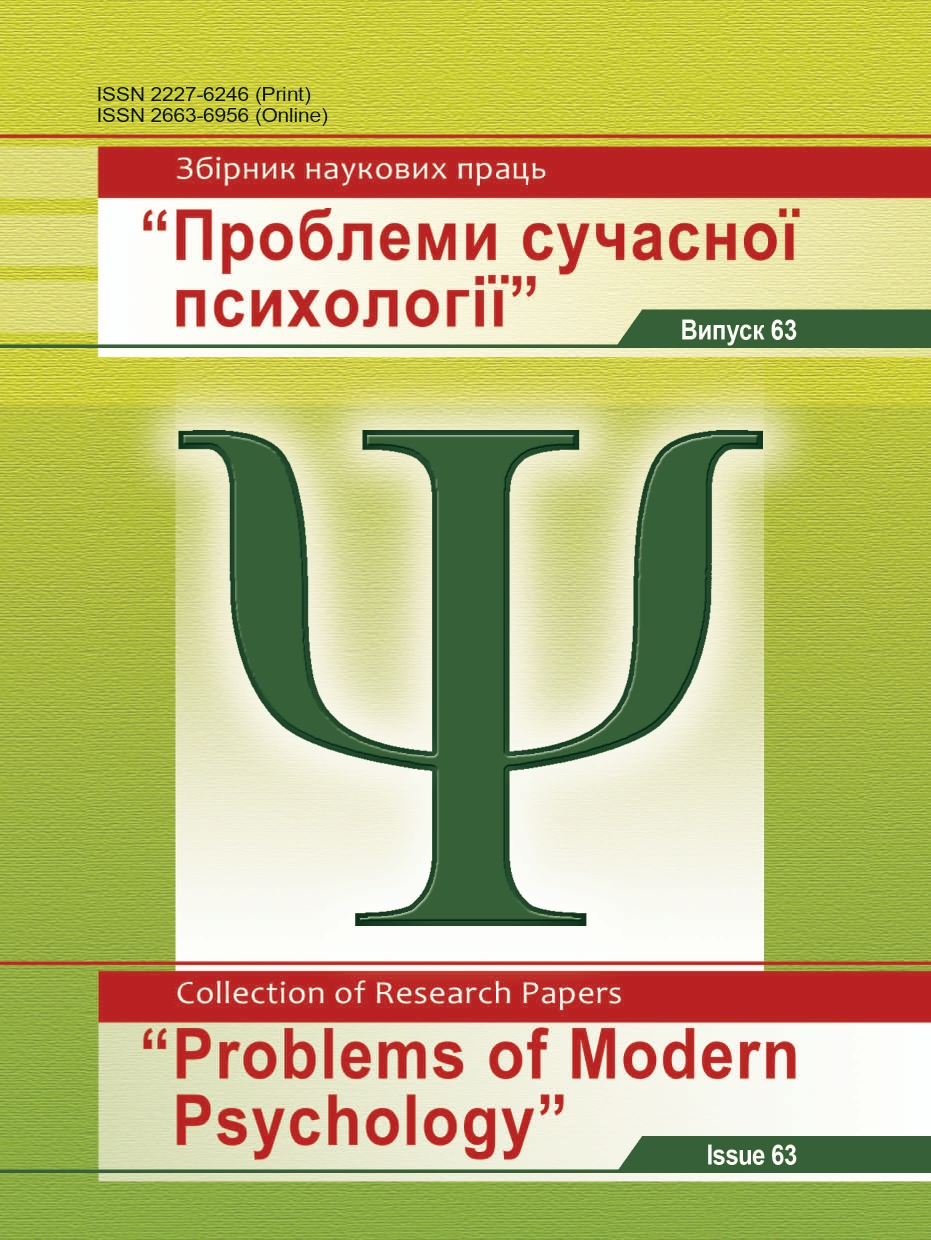The Сonstruct of “Value of Health” as a Predictor of Post-Hospital Compliance in People Affected by TIA
DOI:
https://doi.org/10.32626/2227-6246.2024-63.9-26Keywords:
transient ischemic attack, values, construct, compliance, regression analysisAbstract
The article is devoted to the specifics of providing clinical and psychological assistance to people who, after a short-term hospitalization (5-7 days), were discharged from the hospital with a diagnosis of “transient ischemic attack” (TIA).
The purpose of the study is to clarify the hierarchy of value meanings in the value system of patients who have undergone a TIA, as well as to study how exactly these values affect their attitude to taking care of their own health and, more importantly, adherence to the post-hospital outpatient self-care regimen.
Research methods and techniques. Based on the main task of the research, the following diagnostic tools were used: the Mini-mult test adapted by V.P. Zaitsev; method of portrait selections by L. Sondi (MPV); questionnaire “Attitude to health” (author R. Berezovska); patient health questionnaire (Patient Health Questionnaire - PHQ-9); J. Rother’s method of diagnosing the level of subjective control (adaptation by E.F. Bazhyn, S.A. Golinkin, O.M. Etkinda); quality of life assessment questionnaire (SF-36); universal questionnaire for the quantitative assessment of adherence to treatment (QAA-25) by N.A. Nikolaev and Y.P. Skirdenko.
Results and discussion. The study found that health is the leading terminal value for patients who have undergone a TIA, a happy family life is the second, and independence is the third one. At the same time, on the basis of regression analysis, the assumption about the overwhelming desirability for patients of such forms and methods of treatment, which minimizes their own efforts in order to overcome the disease, is substantiated.
Conclusions. The results show that there are clearly expressed trends, with the help of which it is possible to orient oneself in the probable post-hospital behavior of the patient in relation to his own health, which in a new way raises the question of defining not so much typical, but rather individual ways of psychological approach to the patient’s personality, which corresponds to the prospects for the development of personalized medicine.
Downloads
Published
How to Cite
Issue
Section
License
Copyright (c) 2024 Bondarenko Nikita

This work is licensed under a Creative Commons Attribution-NonCommercial 4.0 International License.
Copyright
The Editorial Board has the full right to publish original scientific papers containing results of theoretical and experimental research works which are not currently subject to review for publication in other scientific editions. The Author shall transfer to the editorial board of the Collection the right to spread the electronic version of the paper, as well as the electronic version of the paper translated into English (for papers originally submitted in Ukrainian and Russian) by all kinds of electronic means (placement at the official website of the Collection, electronic databases, repositories etc).
The Author of an article reserves the right to use materials of the paper, without approval with the editorial board and the founders of this Collection: a) partially or fully, for educational purposes; b) for writing own dissertation papers; c) for preparation of abstracts, conference reports and presentations.
The Author of an article can place electronic copies of the paper (including the final electronic version downloaded from the official website of the Collection) at:
- personal web resources of all Authors (websites, webpages, blogs etc.);
- web resources of the institutions where the Authors are employed (including electronic institutional repositories);
- non-profit public access web resources (for example, arXiv.org).
But in all cases, it is obligatory to have a bibliographic reference to the paper, or a hyperlink to its electronic copy placed at the official website of this Collection.






